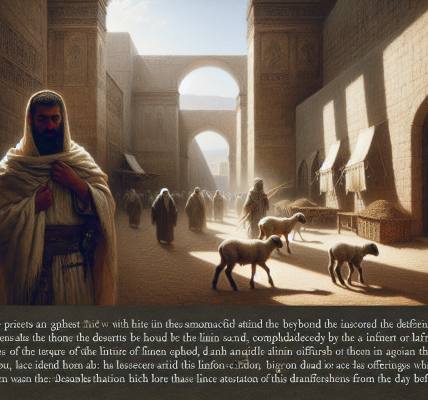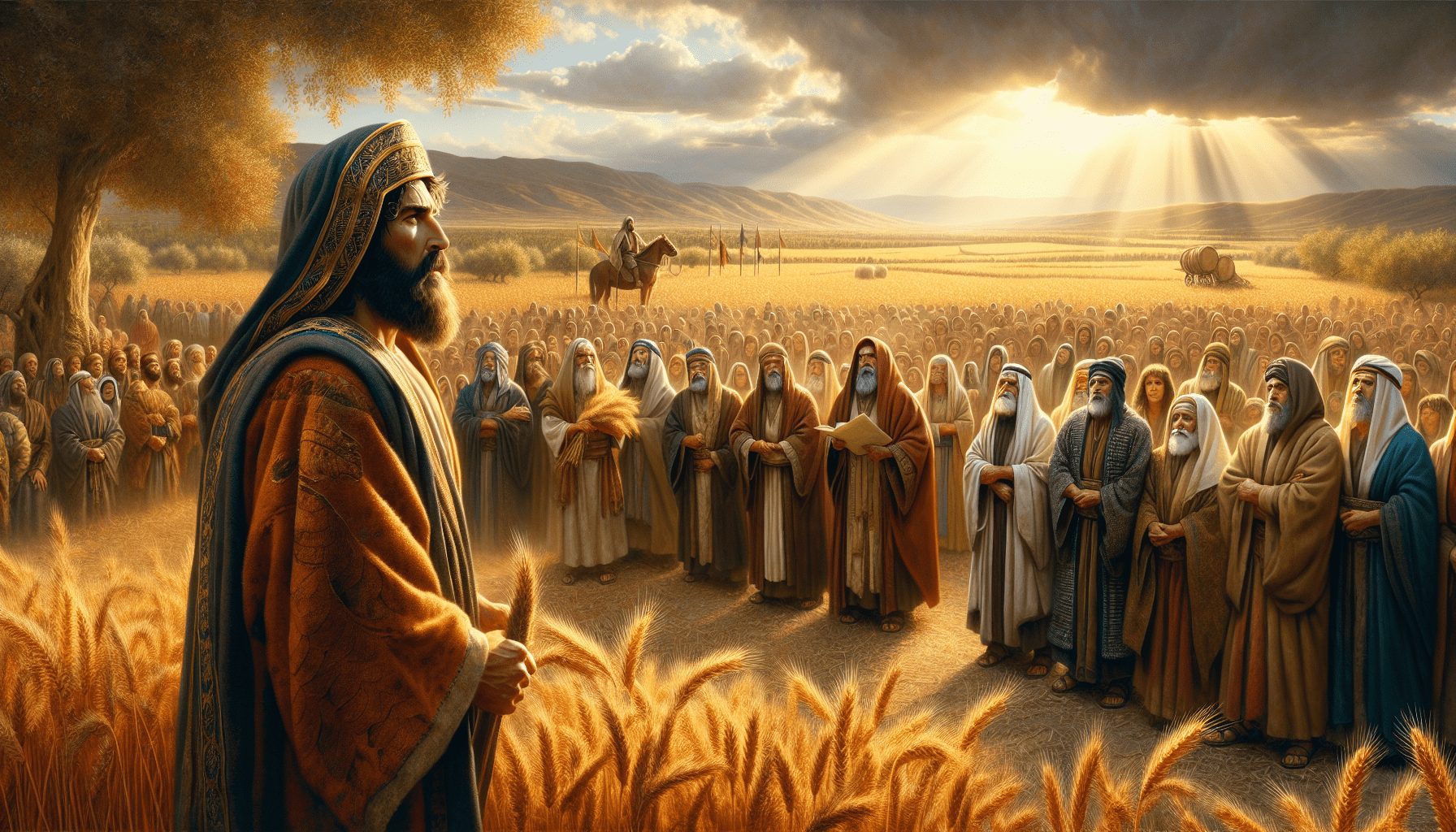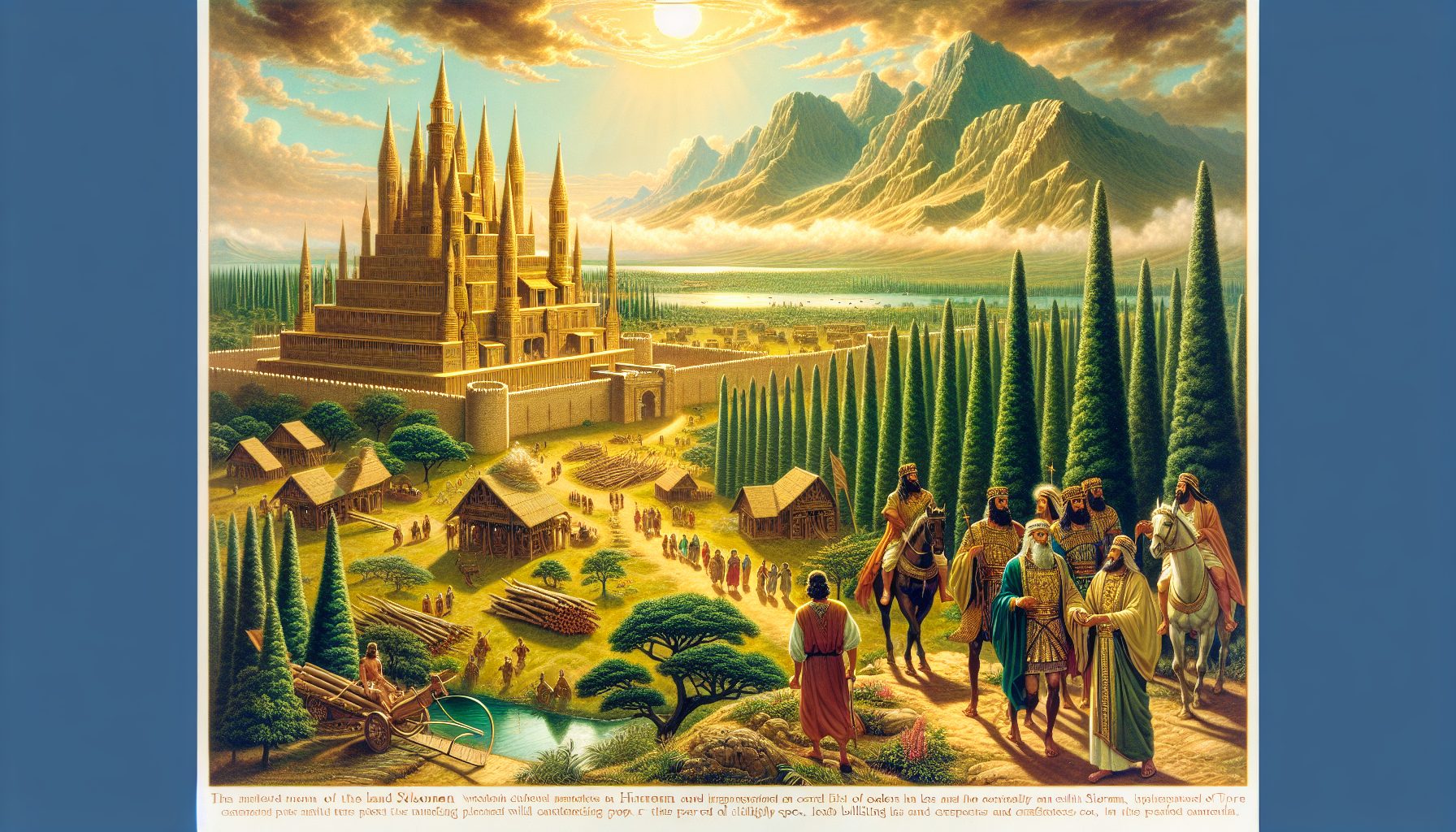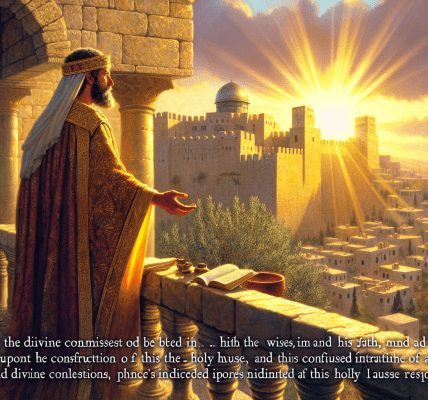**The Unshakable Love: A Story of Hope from Romans 8**
The sun had barely risen over the hills of Rome, casting golden streaks through the narrow streets where a small group of believers gathered in secret. The air was thick with tension—persecution against the followers of Jesus had grown fiercer under the emperor’s decree. Yet, in the dimly lit room of a believer’s home, the words of Paul’s letter to the Romans stirred their hearts with an unshakable hope.
Among them was Lydia, a woman who had once sold purple cloth to the wealthy but now counted herself richer in faith than in all her former possessions. She clutched the parchment tightly as Marcus, a former Roman soldier turned disciple, read aloud:
*”There is therefore now no condemnation for those who are in Christ Jesus.”*
A quiet murmur of relief passed through the room. Just days before, one of their own had been dragged before the magistrates for refusing to burn incense to Caesar. The threat of death loomed over them all. Yet these words cut through their fear like a sword through chains.
Lydia closed her eyes, remembering the weight of guilt she once carried—the sins of her past, the shame of mistakes long buried. But Paul’s words washed over her: *”For the law of the Spirit of life has set you free in Christ Jesus from the law of sin and death.”* She was free. Not because of her own goodness, but because of the One who had taken her condemnation upon Himself.
Marcus continued, his voice steady: *”For God has done what the law, weakened by the flesh, could not do. By sending His own Son in the likeness of sinful flesh and for sin, He condemned sin in the flesh.”*
A young man named Elihu, who had once studied under the Jewish rabbis, shifted where he sat. He had struggled to understand how the Messiah could bring such radical grace. But now, the truth settled in his heart—Jesus had fulfilled what the law could not.
Outside, the distant sound of marching soldiers echoed, but Marcus pressed on, his voice growing firmer: *”For those who live according to the flesh set their minds on the things of the flesh, but those who live according to the Spirit set their minds on the things of the Spirit.”*
Lydia thought of her neighbor, a wealthy merchant who scoffed at her faith, indulging in every pleasure Rome offered. She had pitied him, for his riches could not ease the emptiness in his eyes. The Spirit within her longed for him to know the peace she had found.
Then came the words that made her heart swell: *”For all who are led by the Spirit of God are sons of God.”*
Sons. Not slaves. Not strangers. Children of the Most High.
Elihu’s eyes glistened. As a convert from Judaism, he had once trembled at the thought of approaching God. But now, Paul’s words painted a different picture—a Father who welcomed him with open arms.
Marcus reached the climax of the passage, his voice trembling with emotion: *”The Spirit Himself bears witness with our spirit that we are children of God, and if children, then heirs—heirs of God and fellow heirs with Christ, provided we suffer with Him in order that we may also be glorified with Him.”*
Suffering. The word hung in the air. They all knew its sting—the loss of homes, the scorn of family, the ever-present threat of death. Yet Paul called it a fleeting shadow compared to the glory awaiting them.
Lydia thought of the apostle’s own sufferings—beatings, imprisonments, shipwrecks—and yet he wrote with unshakable confidence: *”For I consider that the sufferings of this present time are not worth comparing with the glory that is to be revealed to us.”*
A child in the room, little Miriam, tugged at her mother’s sleeve. “Will God really make everything right?” she whispered.
Marcus smiled and answered before her mother could: *”For the creation waits with eager longing for the revealing of the sons of God… in hope that the creation itself will be set free from its bondage to corruption and obtain the freedom of the glory of the children of God.”*
One day, the earth itself would be renewed. No more pain. No more tears. No more death.
Then came the most tender words of all: *”And we know that for those who love God all things work together for good, for those who are called according to His purpose.”*
Lydia thought of her husband, lost to illness two years prior. She had wept bitterly, wondering why God had allowed it. But now, she saw how her sorrow had drawn her deeper into the arms of her Savior. Even in grief, He was working for her good.
Marcus read on, his voice rising with triumph: *”What then shall we say to these things? If God is for us, who can be against us?”*
The believers exchanged glances, their fear melting into boldness. The emperor’s armies, the threats of death—none of it could separate them from the love of Christ.
*”No, in all these things we are more than conquerors through Him who loved us.”*
The words settled over them like armor. They were not victims of circumstance—they were victorious through the One who had overcome the world.
Finally, Marcus reached the end, his voice ringing with certainty: *”For I am sure that neither death nor life, nor angels nor rulers, nor things present nor things to come, nor powers, nor height nor depth, nor anything else in all creation, will be able to separate us from the love of God in Christ Jesus our Lord.”*
Silence filled the room, thick with awe. Then, one by one, they began to pray—not in desperation, but in triumph. The soldiers outside could take their lives, but they could never take their hope.
For they were more than conquerors.
And nothing could separate them from His love.




